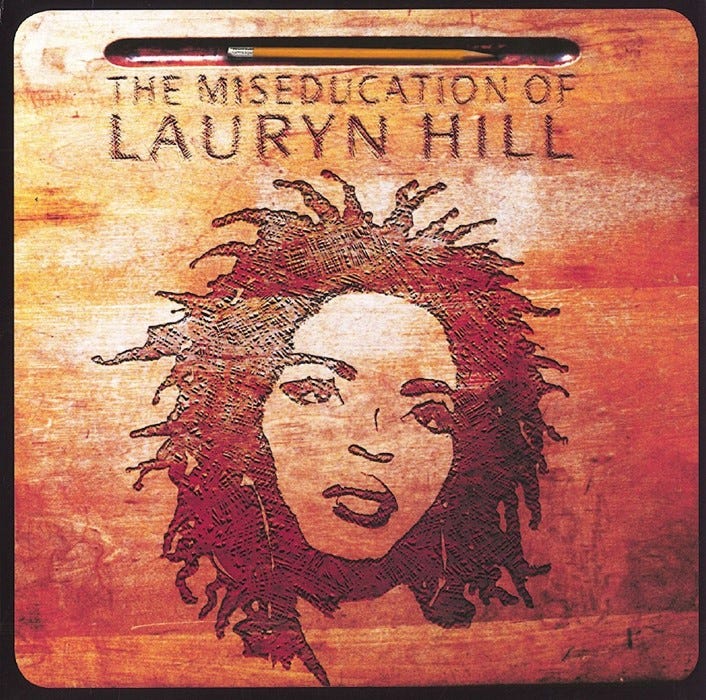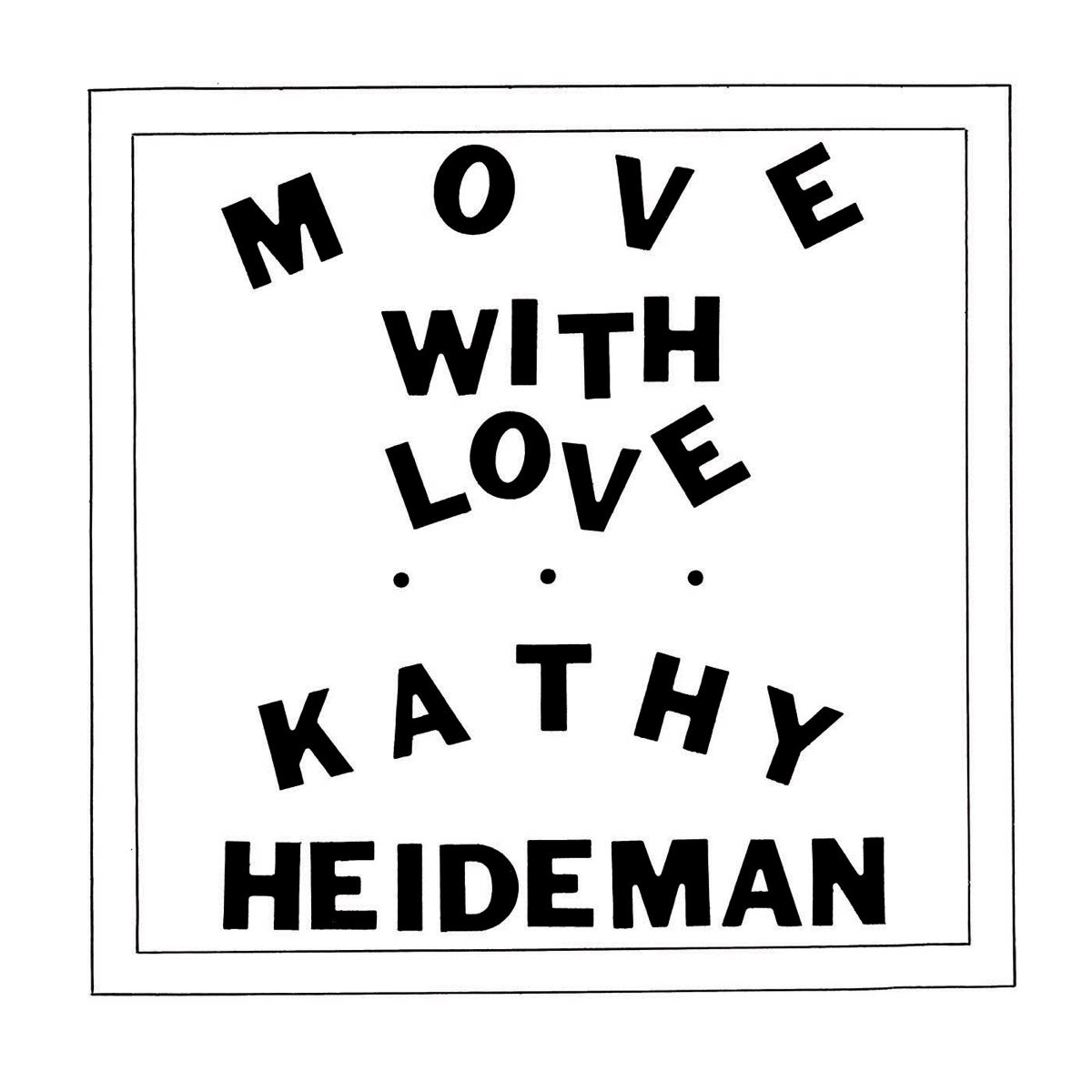Here’s a list. A bloody list. Shameful, perhaps. But fun. It’s of my five favourite one-album artists. You will have your own. Feel free to add them beneath, or to challenge my own…
Lauryn Hill – The Miseducation of Lauryn Hill (1998)
In 1998, Lauryn Hill was riding the crest of a great wave. A charismatic singer and rapper, Hill was blessed with a rich contralto and an exhilarating dexterity as an MC, and within just a few years she had created or co-created two of the highest-selling albums of the decade: The Fugees The Score (1996), and her first and only solo studio album, The Miseducation of Lauryn Hill, two years later. Both were critically praised and liberally awarded. The latter won five Grammys.
Relative to their great success and influence, the Fugees’ and Hill’s body of work is unusually slim. The Fugees released only two albums, before bitterly dissolving in 1997 (they would occasionally, and fitfully, reunite for performances). And Lauryn Hill has made only one solo album, if we discount the weird and unloved MTV Unplugged from 2002.
Regardless, Miseducation was a phenomenon. Recorded when she was just 22, Hill and her band gorgeously mixed soul, reggae and hip-hop. There was the distinctive boom-bap beat of the ‘90s Golden Age, as there were earnest genuflections to God. Hill could be both fierce and tender, as she prosecuted old grievances, asserted her independence from controlling men, and, pregnant at the time, reflected upon her pending motherhood.
But an album made, in part, to liberate herself from the Fugees and its subsequent sourness, would soon generate its own bitterness with the band she employed to help make it. The group of musicians, who went by the name New Ark, were appalled by the lack of writing and production credits, and sued Hill and her label. In 2001, the parties settled out of court for millions.
In 2018, the respected pianist, producer and songwriter, Robert Glasper, revived the controversy in a candid radio interview. Glasper had worked with Hill before, and knew the musicians who’d collaborated on Miseducation, and he said that Hill “stole” music. But this wasn’t all. Glasper cited a long list of reasons for why he’d never work with her again. She prohibited collaborators from making eye-contact, and demanded they refer to her as “Ms. Hill”. She created myths about her own genius, when her work greatly depended upon others. She sacked people erratically. She was cold, capricious, haughty. And she was always late.
It provoked Hill to breach her reclusiveness and pen a lengthy response on Medium:
I have come across the occasional musician who thinks they already know what I want, feelings and egos can be easily bruised when you tell them they actually don’t. I am never trying to intentionally hurt anyone’s feelings btw, but when people insist that they know you and don’t, you may have to be equally as firm to demonstrate otherwise…
The 25 years since Miseducation have been tumultuous for Hill, and creatively arid. She has raised six children, espoused strange conspiracy theories and developed a notoriety for bizarrely indifferent performances – if she shows up in the first place. In 2013, Hill was jailed for tax evasion. Her three-month imprisonment was bookended by two singles – “Neurotic Society” and “Consumerism” – which teased the release of a second solo album The Return. But the album never appeared. In 2021, in a rare interview, Hill tried to explain why Miseducation had never been followed:
People had included me in their own narratives of their successes as it pertained to my album and if this contradicted my experience, I was considered an enemy. After The Miseducation, there were scores of tentacled obstructionists, politics, repressing agendas, unrealistic expectations and saboteurs everywhere.
One suspects that one of those saboteurs is Hill herself.
Life Without Buildings – Any Other City (2001)
How do you describe Sue Tompkins’ vocals? Tompkins didn’t sing, so much as ecstatically liberate streams-of-consciousness. She spoke, whispered, scatted. And she did so in beguiling, obsessive patterns. She repeated phrases like Van Morrison once did – turning syllables into strange percussive and rhythmic forces. In her charming speak-sing, she had an utterly idiosyncratic sense of rhythm. I still haven’t heard anything like it. The Slits come to mind, I guess, and more recently the vocals of Dry Cleaning’s Florence Shaw. But also, not really.
“I have got a writing style, but I’m in denial of it, and being in denial of it is a way of keeping it going,” Tompkins said in a recent interview.
Everything does mean a lot to me, and I try to write often with an attachment to a visual or emotional memory, which is so obvious, but that’s the way that I write. I write when I think I’m affected by something. I like thinking about collage, like a Rolodex of image and word, music, rhythm, repetition, and when it repeats you’ll see it differently, just those really delicate, interesting things.
They were classified as a post-punk band, I think, with their fast and angular guitar. Perhaps they were. I think of them as a unique, joyously propulsive pop group, formed as a lark and disbanded almost as soon as they were. Art-school kids from Glasgow who chanced upon something rare, and then evaporated.
The Exploding Hearts – Guitar Romantic (2003)
Life Without Buildings decided to never make another record. The Exploding Hearts didn’t have a choice. Young revivalists of ‘70s punk/power-pop, their lusty infatuation with The Undertones, The Only Ones and the Buzzcocks weren’t exactly stylish when they formed, in Portland, at the turn of the century.
They weren’t ironic retro-appreciators, either. They were sincerely in love with these sounds and they made their own perfectly. Guitar Romantic is loud, earnest, fuzzily produced. It’s greasy, brash but melodic. There are nasal vocals and electric riffs. And compared with some of the overly precious, ultra-produced baroque pop that would soon define much of the mid-to-late noughties, it’s charmingly refreshing.
The four boys released the album in April, 2003. By July, three of them were dead. The Seattle Times reported at the time:
“Three members of Exploding Hearts – a rising Portland pop-punk band with Seattle connections – were killed in a rollover accident on Interstate 5 north of Eugene on Sunday.
“Lead singer Adam Cox, 23, drummer Jeremy Gage, 21, and bassist Matthew Fitzgerald, 20, were ejected from the van they were riding in when it went out of control and flipped two times before coming to rest at the side of the highway.”
They had been driving back to Portland after a show in San Francisco. The only member to survive was guitarist Terry Six. The fifth passenger, their manager, also survived.
In a 2007 interview, Six said it was hard to listen to the album. But that “sometimes, when I get wasted, I will play it for people, and go, ‘Listen to that shit. Wasn’t it fucking great?’”
It still is.
The Sex Pistols – Never Mind the Bollocks (1977)
What can be said that hasn’t been said already? The Pistols’ contradictions still faintly interest me, but plenty of books have already (exhaustively) analysed them: they were a confected band, the brainchild of their manager – the mischievous Svengali Malcolm McLaren – but nonetheless were defined by the bracingly sincere disgust and nihilism of frontman Johnny Rotten. Few of them could play their instruments well (and McLaren liked it this way), and yet collectively they possessed a powerful charisma. Emblems of the hopeless and downtrodden, their best songwriter was a “middle-class mommy’s boy” who loved ABBA.
In the end, which came very quickly, the violent dysfunction of the group – which McLaren had helped encourage – would swallow them. In 1978, Sid Vicious was charged with the stabbing murder of his girlfriend Nancy Spungen, who was found dead in their New York hotel room the morning after a party. McLaren believed him innocent, and sold t-shirts to fundraise for his legal defence. The t-shirts read: “She’s Dead, I’m Alive, I’m Yours”. Three months later, Vicious fatally overdosed.
Years later, Jah Wobble, a musician and friend of the band, told the writer Jon Savage:
It was a sick scene. You know that Dennis Potter play where the grown-ups are playing kids, Blue Remembered Hills? It was like that. When you put emotional cripples together, you get something very powerful. It can be good or bad, and it can be directed either way. It had to burn out, it was the same energy of a four-year-old asserting itself on the world, when it throws a tantrum. It wasn’t going anywhere else.
And it didn’t.
Kathy Heideman – Move With Love (1976)
The story goes something like this: one Dia Joyce wrote ten songs and then hired an obscure session vocalist, a small band and a tiny recording studio in the Californian desert. The year was probably 1976, but this is disputed. Kathy Heideman was a pseudonym. We don’t know the names of most of the other musicians. Mysteries upon mysteries.
Apparently, Joyce’s songs were recorded in one day, then released by a homemade label – Country Flavor Records – which had released nothing before and released nothing after.
Move With Love was barely distributed and quickly forgotten. That was until members of the San Fran indie group Vetiver found a copy in an op-shop in 2008. With British folk legend Vashti Bunyan, they soon recorded a cover of “Sleep a Million Years”, and in 2013 the archival label Numero Group re-released the album and made it available for streaming. Before they did, Numero did some sleuthing about the album’s origins. You can read what they found here.
It’s a dusty, gorgeous collection of folk and country soul, sung like Emmylou Harris.









Oh and thank you for mentioning Kathy Heideman, a real revelation.
Love this list. Can’t really fault it. If you stretch to a top ten, I’d recommend taking a listen to:
Jackson C Frank - Blues Run the Game
The Amps - S/T
The United States of America - S/T
Sibylle Baier - Colour Green
The Missing Links - S/T